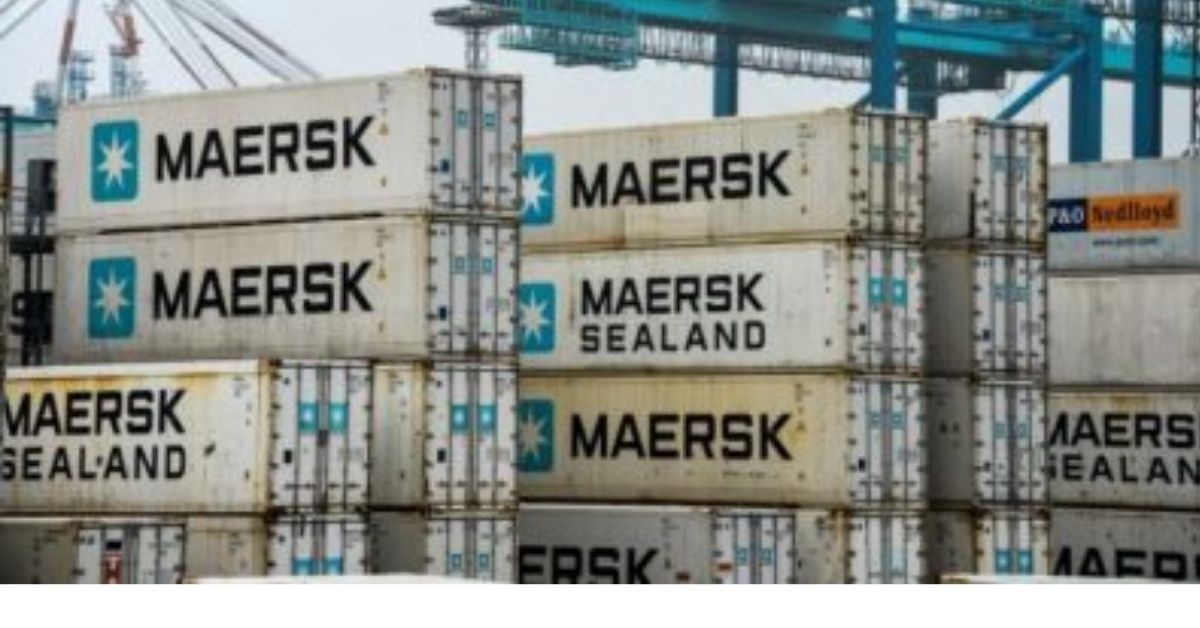A.P. Moller-Maersk A/S is having either the greatest year in its 118-year history or the worst in more than a decade, depending on whether you look at its profits or stock performance.
While much of the discrepancy is due to investors anticipating a drop in future earnings, the contrast is stark for the transport giant, which is making so much money at the moment that its net income is equal to about 9% of the entire gross domestic product of Denmark, its home country.
Maersk profits have surged because a shortage of shipping capacity, amplified by supply-chain bottlenecks and Covid-19 lockdowns, caused freight rates to soar. Rates climbed more than sevenfold from October 2019 to their peak in January 2022, according to the Shanghai Shipping Exchange Container Index, a measure for freight out of China, before dropping back about 60% as ports opened up and congestion eased.
As a result, the company’s earnings are likely on a roller-coaster ride. Net income will almost double from 2021’s already high level to a record $29.3 billion this year, according to the latest survey by Bloomberg, which includes 13 analysts. That will make it the third-highest earner in the Stoxx Europe 600 index.
Next year looks very different, with analysts predicting net income dropping more than 70% to just $7.97 billion.
At the heart of the quandry over its stock valuation is the question of how sustainable Maersk’s earnings are, and what its booked contracts — around 70% of its long-term business — are really worth going forward as spot rates plummet.
Maersk’s shares are heading for their worst year since the financial crisis of 2008. The stock is down 38% so far, close to double the average in the Stoxx Europe 600.
Anders Redigh Karlsen, shipping equity analyst at Kepler Cheuvreux, said in a phone interview that spot-rate volatility has led to “uncertainty around the earnings forecast,” and that there is a debate over how much of an impact such rates will have on Maersk’s contracts going forward.
“I believe there is some merit to the contracts,” Redigh Karlsen said. “There will likely be some people trying to renegotiate. There may be some concessions on a case to case basis, for instance against a longer contract duration.”
Others are more pessimistic. Barclays analyst Alexia Dogani, who has one of the few sell-equivalent recommendations for the Danish shipping firm, said in emailed comments the spot-rate trajectory, which is currently plummeting, is “the closest read to future earnings prospects.”
The outlook for shipping comes amid a looming recession, in which higher consumer prices are seen leading to lower global demand for the goods Maersk transports in its ships. As supply-line congestions ease around the world, capacity will also rise, meaning more vessels will compete for fewer goods.
Barclays’s Dogani sees “significant” earnings risks if the upcoming recession is similar to the global financial crisis of 2008. And while Maersk has in past years worked strategically to reduce its exposure to volatile shipping rates by investing heavily in land-based transportation, she is skeptical it will fuel an outperformance due to the segment’s commoditized characteristics.
Analysts are taking an increasingly gloomy view on the container line and have on average cut their 12-month price targets by 12% over the last two months, according to data compiled by Bloomberg, even if most still recommend buying the shares.







